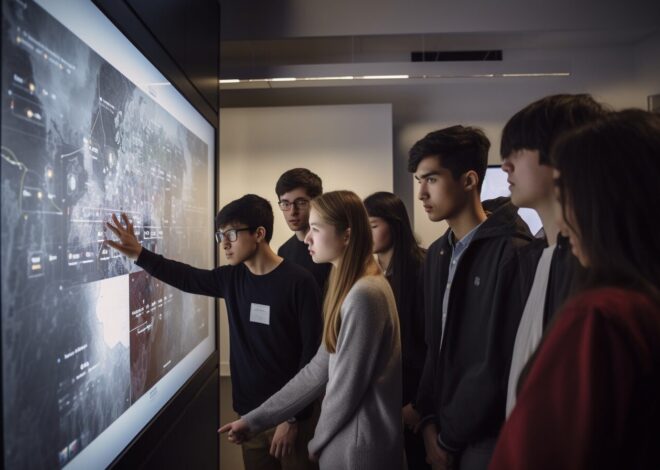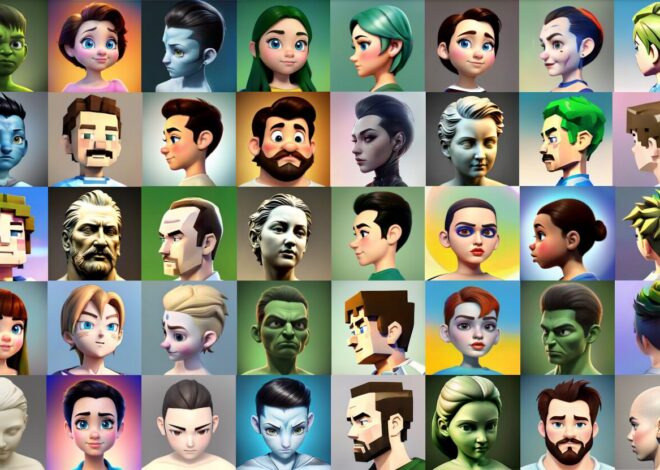
How the AI Revolution Is Disrupting Societies Worldwide
Introduction
Artificial intelligence (AI) systems have been making headlines in recent times, particularly with the emergence of OpenAI’s ChatGPT. The rapid development and adoption of these technologies have sparked concerns among experts, policymakers, and the general public. Some worry that AI systems may lead to the displacement of millions of workers, blur the distinction between truth and falsehood, and exacerbate existing inequalities. In this article, we will examine these concerns and explore whether they are justified.
The Rise of AI Systems
AI systems have been in development for decades, but recent advancements have accelerated their adoption across various industries. These systems can process vast amounts of data, learn from experiences, and adapt to new situations with ease. The success of OpenAI’s ChatGPT has further fueled the growth of AI technologies.
Concerns about Job Displacement
One of the primary concerns surrounding AI systems is job displacement. Many experts predict that automation will lead to significant job losses across various sectors, including manufacturing, transportation, and customer service. According to a report by the McKinsey Global Institute, up to 800 million jobs could be lost worldwide due to automation by 2030.
The Impact on Low-Skilled Workers
Low-skilled workers are likely to bear the brunt of job displacement. AI systems can perform tasks that were previously done by humans with ease and accuracy. For example, self-service kiosks have replaced many cashiers in retail stores. Similarly, chatbots like ChatGPT have reduced the need for human customer support agents.
The Impact on Skilled Workers
While AI systems may replace low-skilled jobs, they are unlikely to replace skilled workers immediately. However, experts warn that AI could potentially displace skilled workers as well. For instance, AI-powered tools can automate tasks such as data analysis, coding, and even some types of creative work.
The Role of Education in Addressing Job Displacement
While job displacement is a concern, education can play a crucial role in mitigating its impact. By investing in education and retraining programs, governments and employers can help workers develop the skills needed to thrive in an AI-driven economy. According to a report by the World Economic Forum (WEF), the top skills required for the future include:
- Complex problem-solving
- Critical thinking
- Creativity
- Emotional intelligence
- Adaptability
The Blurring of Truth and Falsehood
Another concern surrounding AI systems is their potential to blur the distinction between truth and falsehood. Social media platforms have already been criticized for spreading misinformation and fake news. With the rise of AI-generated content, it may become increasingly difficult to distinguish between fact and fiction.
The Impact on Society
The blurring of truth and falsehood can have significant consequences for society as a whole. It can erode trust in institutions, lead to social unrest, and undermine democracy. For example, during the 2016 US presidential election, fake news stories were spread through social media platforms, potentially influencing voter behavior.
Amplifying Existing Inequalities
AI systems have been criticized for exacerbating existing inequalities. For instance, AI-powered tools can perpetuate bias and discrimination in hiring practices, law enforcement, and even healthcare. According to a report by the Algorithmic Justice League, AI systems can reinforce systemic racism and sexism.
Addressing Concerns about AI Systems
While concerns surrounding AI systems are valid, they can be addressed through responsible development and deployment. Governments, employers, and developers must work together to ensure that AI technologies are designed with safety and fairness in mind.
Conclusion
The rise of AI systems has sparked significant concern among experts, policymakers, and the general public. While job displacement, the blurring of truth and falsehood, and amplifying existing inequalities are legitimate concerns, they can be addressed through education, responsible development, and deployment. By investing in education and retraining programs, governments and employers can help workers develop the skills needed to thrive in an AI-driven economy.
References
- McKinsey Global Institute (2017). A future that works: Automation, employment, and productivity.
- World Economic Forum (2020). The Future of Jobs Report 2020.
- Algorithmic Justice League (2020). Bias in AI Systems.
- Deutsche Welle. (n.d.). The Rise of AI Systems: Concerns and Consequences.
Subscribe to Our Channel
For more in-depth analysis and discussion on the latest global news, subscribe to our channel:
https://www.youtube.com/user/deutsche…












